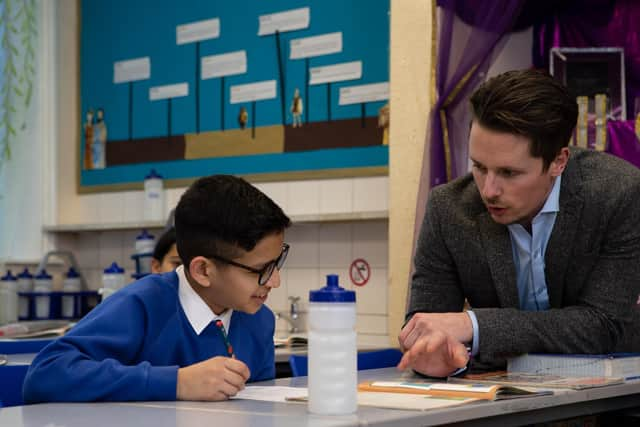How Calderdale schools are preparing for the safe return of pupils
and live on Freeview channel 276
Members of Calderdale Council’s Children and Young People’s Scrutiny Board asked questions about whether it was prudent for them to return amid the ongoing COVID-19 pandemic and about vaccinations for staff.
Dr Helen Vickers said COVID-19 was still significantly high in Calderdale and asked whether children returning on March 8, a target date, was realistic.
Advertisement
Hide AdAdvertisement
Hide AdThe “R” rate, the rate at which the virus can reproduce is 0.8 but it was expected the return to school would raise this to 1.5, she said.


Dr Vickers also asked if special school staff had been vaccinated.
Board Chair Coun Colin Raistrick (Ind, Hipperholme and Lightcliffe) said questions about when schools went were not ones the board could answer – it was a Government decision.
Public Health consultant Ben Leaman said all special school staff had now been offered the vaccine.
Advertisement
Hide AdAdvertisement
Hide Ad“We are working to make the school environment as safe as possible,” he said.
Mr Leaman said there was no national guidance but that did not stop public health from giving guidance locally, including about use of space available in schools and good ventilation, particularly relating to the new more transmissible variant of COVID-19.
A working group was considering the issues and public health was working with school heads.
“We will continue to do everything we can to make education as safe as possible going through COVID,” he said.
Advertisement
Hide AdAdvertisement
Hide AdIf schools went back on March 8, there would be a whole lot of information issues by the authorities, said Mr Leaman.
Coun Sarah Courtney (Lab, Calder) asked if other, non-special school, school staff could have their vaccinations brought forward.
Mr Leaman said that was a national issue with the process being run by the NHS, although they would take advice from public health.
He said it was important to re-emphasise that the purpose of vaccination was to reduce the impact of COVID-19 on people who might end up in hospital or die.
Advertisement
Hide AdAdvertisement
Hide AdThat was why older age ranges and those who were extremely vulnerable were being offered vaccinations first.
When all the nine groups identified had been through the process, at that point conversations about which other groups should be prioritised next could take place.
There was no evidence that teachers were more likely to die or become seriously ill even though they were more susceptible to catching it.
If it related to transmission that would be a different conversation, but that was not the case, he said.